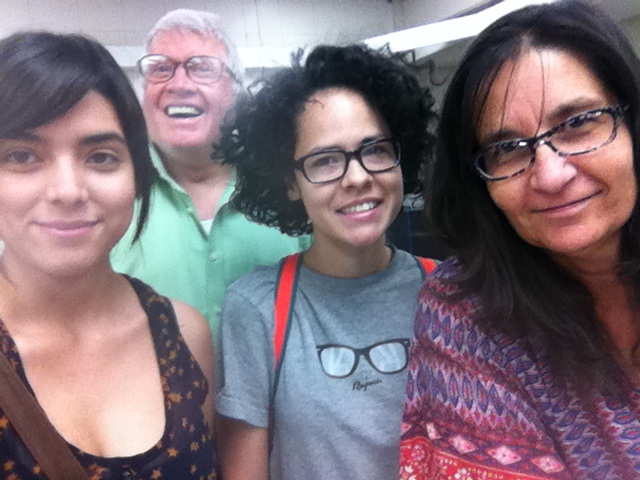The (In)Visible Memoirs Project runs no-cost, community-based writing workshops throughout the state of California, with the aim of creating a literary landscape that pushes back on dominant literary discourse’s exclusionary practices. Between January and April, writer P&W-supported writer Ruth Nolan taught an (In)Visible Memoirs workshop at College of the Desert in Palm Desert, California. Project director Rachel Reynolds writes about the workshop. The thing about invisibility is that there are real risks to refusing its cloak. Invisibility counts on these risks for its effective deployment. Anyone who has found their space at the periphery—which is more of us than not—knows how terrifying it can be to push back the curtain and demand to be counted. As the person at the helm of programming for the (In)Visible Memoirs Project, I am constantly awed by how many people—instructors, participants, and community sponsors alike—are ready to let their stories ring out.
The thing about invisibility is that there are real risks to refusing its cloak. Invisibility counts on these risks for its effective deployment. Anyone who has found their space at the periphery—which is more of us than not—knows how terrifying it can be to push back the curtain and demand to be counted. As the person at the helm of programming for the (In)Visible Memoirs Project, I am constantly awed by how many people—instructors, participants, and community sponsors alike—are ready to let their stories ring out.
According to the AFSP (American Foundation for Suicide Prevention), nearly 40,000 people took their own lives in 2010. In the same year, the AFSP identified nearly 460,000 attempted suicides. Tallied together, roughly half a million people navigated suicide directly in 2010. The lives of countless others were impacted too, as friends and family of those directly involved struggled to walk this terrain.
When professor Ruth Nolan responded to my call for new (In)Visible Memoirs Project workshops this past fall, she wrote, “All too often, suicide survivors become victims, too, of social prejudices and judgments, and having experienced this myself, I have come to realize there is a huge need to give suicide survivors a safe and productive space to write, identify, and heal.” We leapt at the chance to support her in her goal of providing the first-ever workshop for people who live in the Palm Desert region and have lived with the impact of suicide.
Ruth Nolan is a force. A professor at College of the Desert in Palm Springs, she teaches writing and literature in addition to advising the college literary magazine. She is a widely published poet and prose writer, and an editor to boot. Armed with both personal experience and the chops required to deftly usher writers into a carefully crafted safe space, we knew she would provide a transformative experience for her workshop participants. What we could never have predicted, though, was just how far she’d take them or how essential the space she held was.
Meeting with seven participants—who spanned a forty-year age range and various social and ethnic identities—Ruth discovered that many of them had either wanted or been invited to speak at public suicide awareness events in the region but then felt their story was too dark, or worse, been asked not to share it. Immediately, Ruth made space for sharing these stories a workshop priority. What began as a shedding of silence within the confines of workshop meetings gained momentum and bloomed into multiple readings at public events. As I write this today, Ruth and members of her workshop have just finished recording some of their work for radio broadcast. From silence to center stage in the course of a twenty-hour workshop—Ruth and her workshop participants are writers of the fiercest sort.
Photo: From left: Darlene Arciga, Tim Johnson, Kimberly Martinez, and Ruth Nolan. Credit: Ruth Nolan.
Major support for Readings/Workshops in California is provided by The James Irvine Foundation. Additional support comes from the Friends of Poets & Writers.





